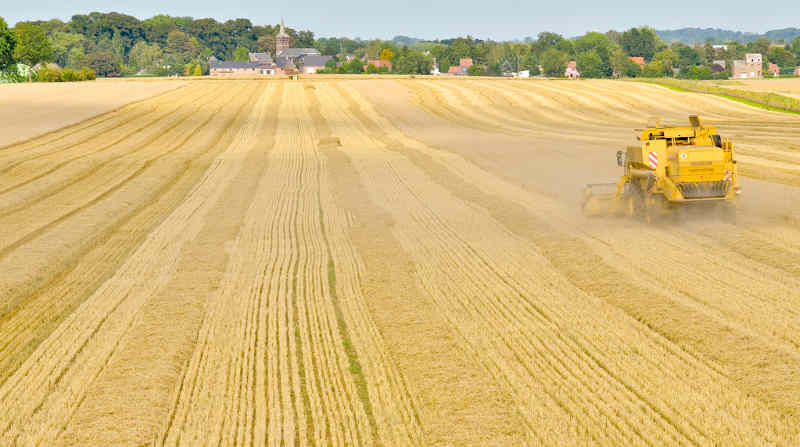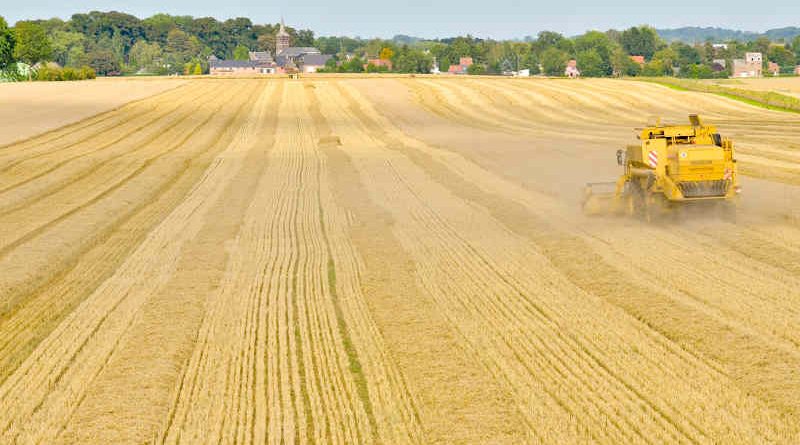European Union to Release Greener Farm Policy

The future farm policy of the European Union (EU) should be more flexible, sustainable, and crisis-resilient, so that farmers can continue to deliver food security across the EU.
The Members of the European Parliament (MEPs) on October 23 adopted their position on the post-2022 EU farm policy reform. The European Parliament negotiating team is now ready to start talks with EU ministers.
The MEPs endorsed a policy shift that should better tailor the EU’s farm policy to the needs of individual member states but they insist on maintaining a level playing field across the Union.
National governments should draft strategic plans, which the Commission will endorse, specifying how they intend to implement EU objectives on the ground. The Commission would be checking their performance, not only their compliance with EU rules.
“The objectives of strategic plans shall be pursued in line with the Paris Agreement,” the MEPs say.
Parliament strengthened mandatory climate and environment-friendly practices, the so-called conditionality, that each farmer must apply to get direct support.
On top of that, the MEPs want to dedicate at least 35% of the rural development budget to all types of environmental and climate-related measures. At least 30% of the direct payments budget should go to eco-schemes, which would be voluntary but could increase farmers’ income.
The MEPs insist on setting up farm advisory services in every member state and allocating at least 30% of their EU-sponsored funding to help farmers fight climate change, manage natural resources sustainably, and protect biodiversity.
They also call on member states to encourage farmers to dedicate 10% of their land to landscaping that is beneficial to biodiversity, such as hedges, non-productive trees, and ponds.
The MEPs voted to progressively reduce annual direct payments to farmers above €60 000 and cap them at €100 000. However, farmers could be allowed to deduct 50% of agriculture-related salaries from the total amount before reduction.
Common Agricultural Policy
The Common Agricultural Policy (CAP) is one of the oldest common policies in the EU. Its significance is reflected in the proportion of the EU’s budget devoted to it, representing approximately 40% of the total.
Developed at a time when Europe was unable to meet most of its own food needs, it was necessary to encourage farmers to produce food by means of guaranteed prices. The policy has undergone regular reform and has evolved over the years.
As part of the preparation of the EU budget for 2021-2027, the European Commission put forward a new set of regulations to shape the future CAP on 1 June 2018. The proposal for a regulation on the financing, management, and monitoring of the CAP provides the legislative framework for adapting the financing, management, and monitoring rules to a new CAP delivery model.
At least 6% of national direct payments should be used to support small and medium-sized farms but if more than 12% is used, the capping should become voluntary, MEPs say.
The EU states could use at least 4% of their direct payments budgets to support young farmers. Further support could be granted from the rural development funding where young farmers’ investments could be prioritized, MEPs say.
Parliament stresses that EU subsidies should be reserved only for those who engage in at least a minimum level of agricultural activity. Those who operate airports, railway services, waterworks, real estate services, permanent sports and recreational grounds should be automatically excluded.
The MEPs rejected all proposals to reserve meat-related names for products containing meat. Nothing will change for plant-based products and the names they currently use when being sold.
Parliament pushed for further measures to help farmers cope with risks and potential future crises. It wants the market to be more transparent, an intervention strategy for all agricultural products, and practices aiming for higher environmental, animal health, or animal welfare standards to be exempt from competition rules.
They also want to turn the crisis reserve, helping farmers with price or market instability, from an ad-hoc instrument to a permanent one with a proper budget. Parliament wants to increase sanctions for those who repeatedly fail to comply with EU requirements (e.g. on the environment and animal welfare). This should cost farmers 10% of their entitlements (up from today’s 5%).
The MEPs also want an ad-hoc EU complaints mechanism to be set up. This would cater to farmers and rural beneficiaries who are treated unfairly or disadvantageously with regard to EU subsidies, if their national government fails to deal with their complaint.
The strategic plans regulation was approved by 425 votes in favour to 212 against, with 51 abstentions. The regulation on common market organization was approved by 463 votes in favour to 133 against, with 92 abstentions.
The regulation on financing, management, and monitoring of the Common Agricultural Policy (CAP) was approved by 434 votes in favour to 185 against, with 69 abstentions.
The last reform of the EU farm policy, established in 1962, dates back to 2013. The current CAP rules expire on 31 December 2020. They should be replaced by transitional rules until the ongoing CAP reform is agreed and approved by the Parliament and Council.
The CAP accounts for 34.5% of the 2020 EU budget (€58.12 billion). Around 70% of the CAP budget supports the income of 6 to 7 million EU farms.




